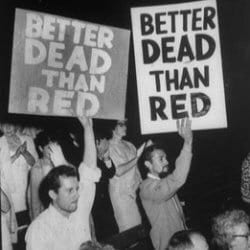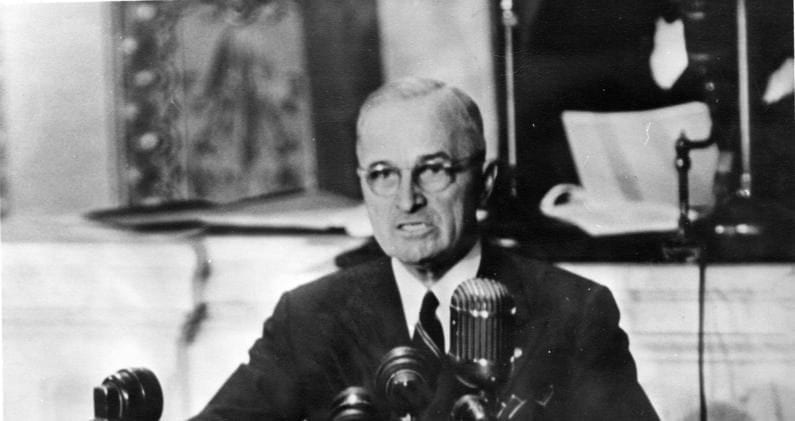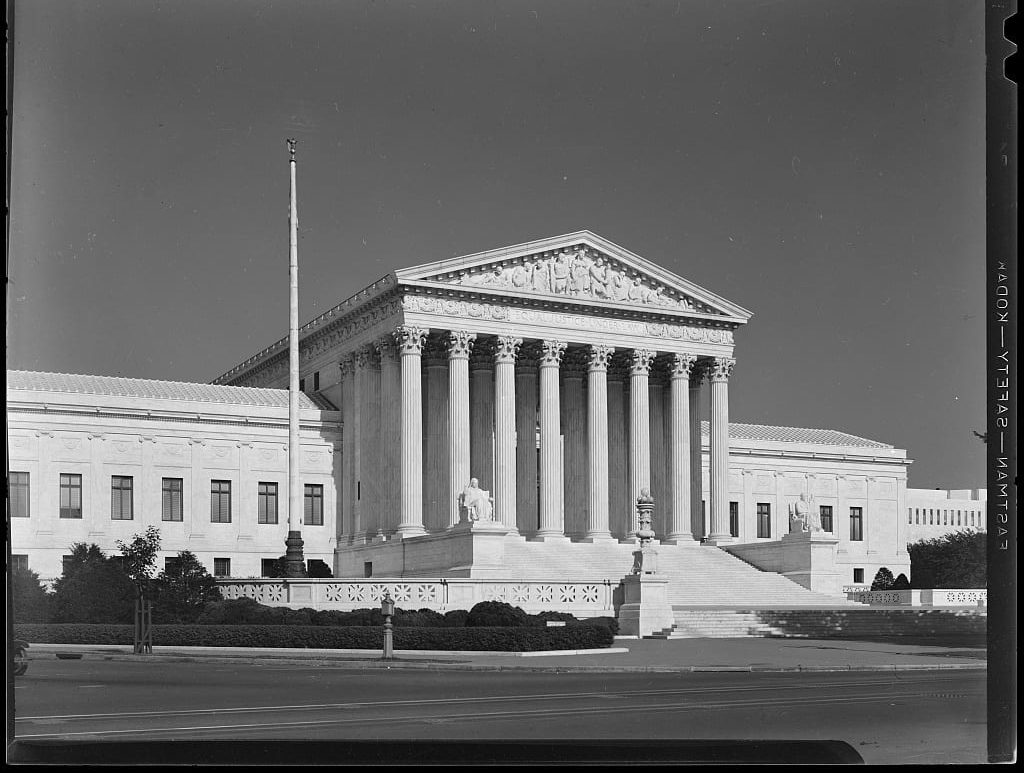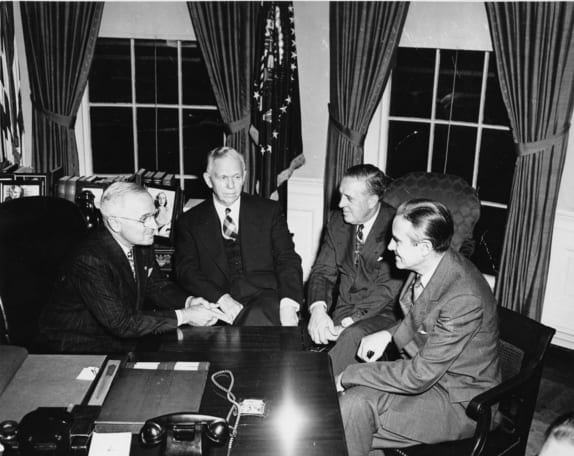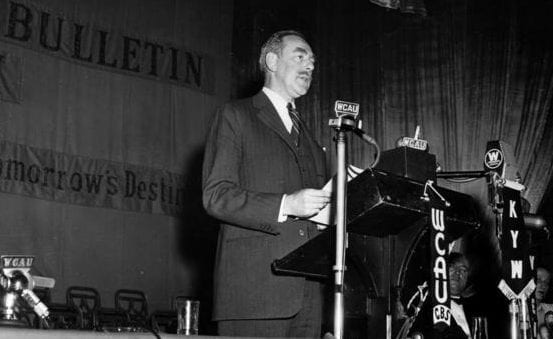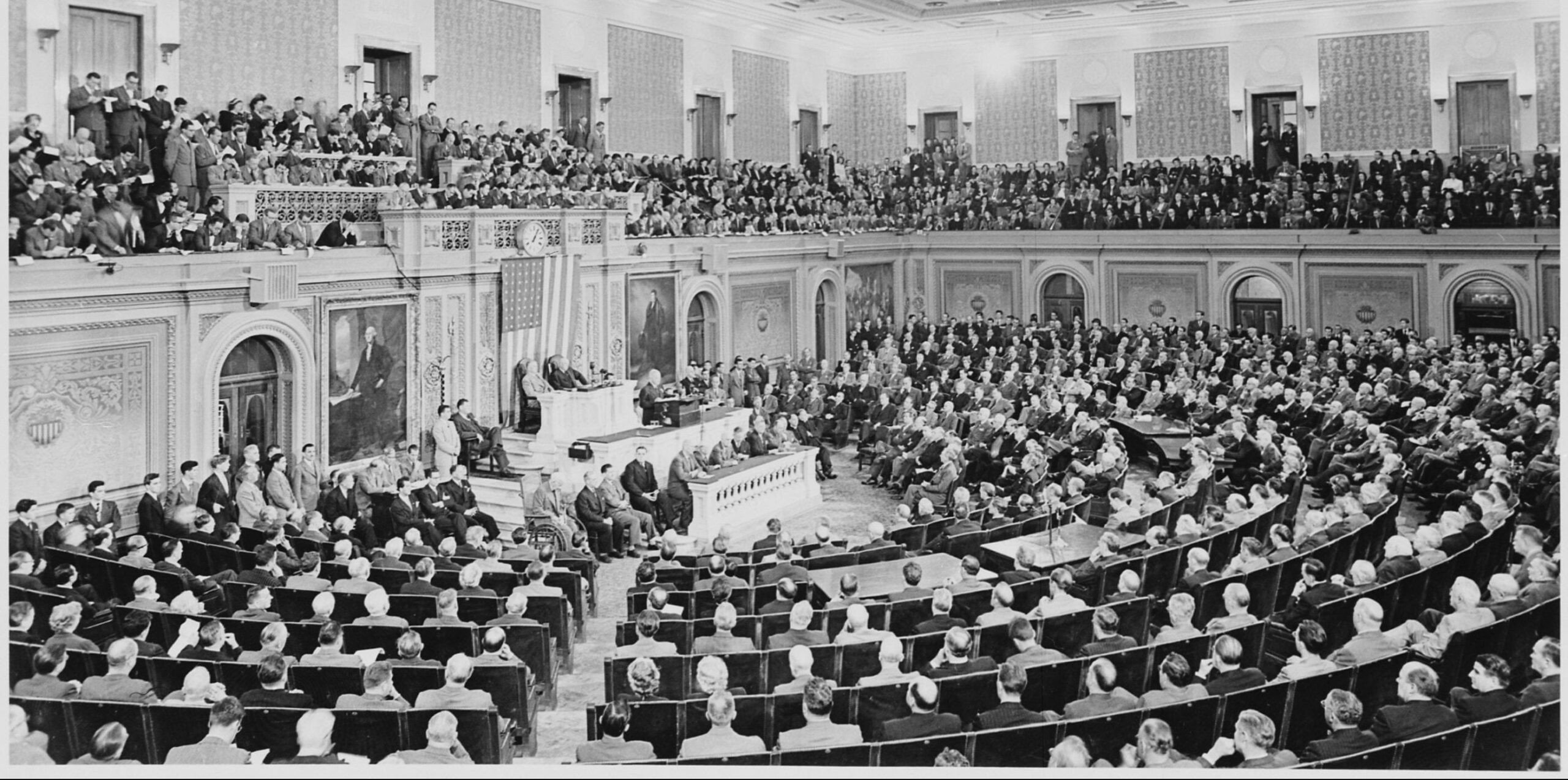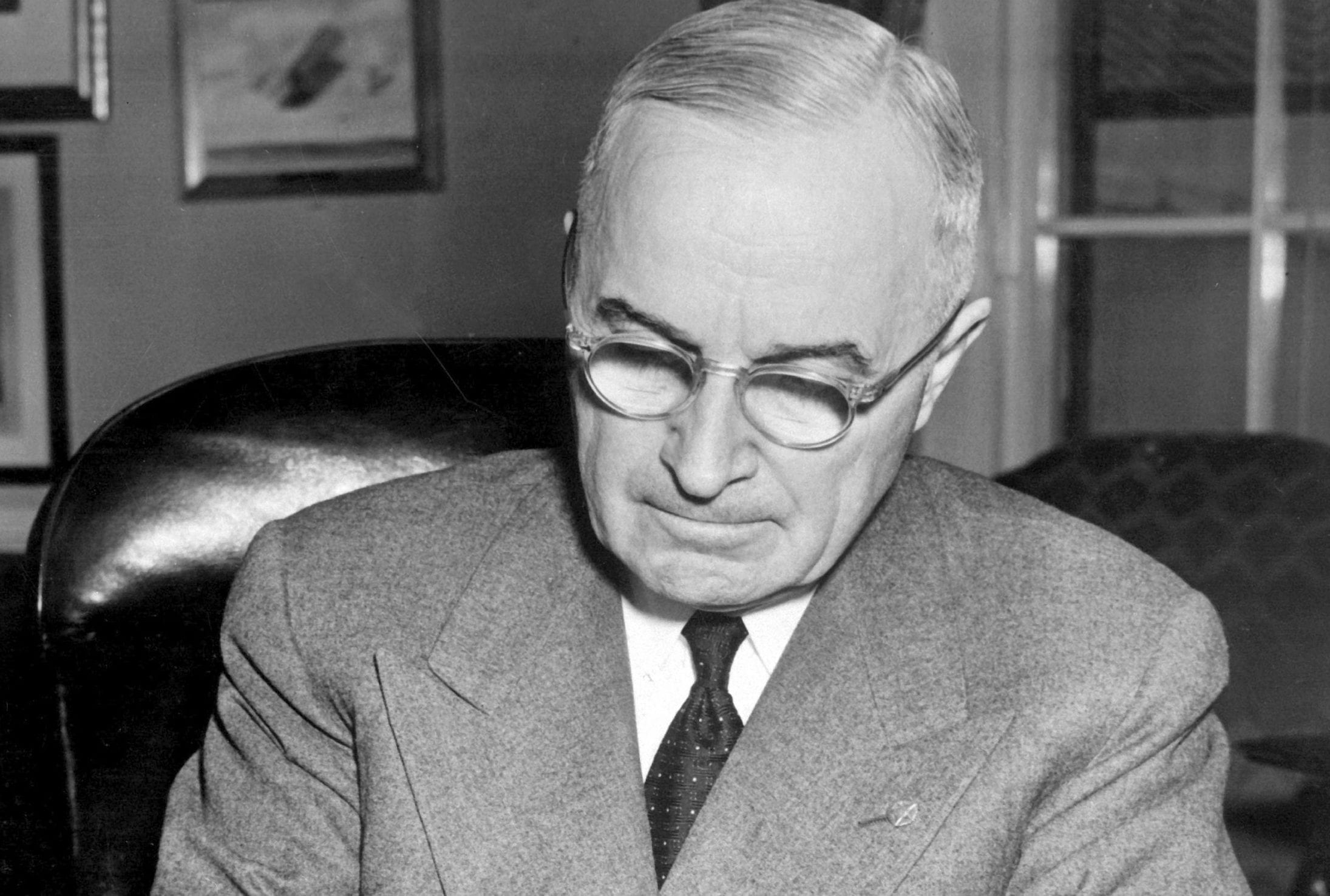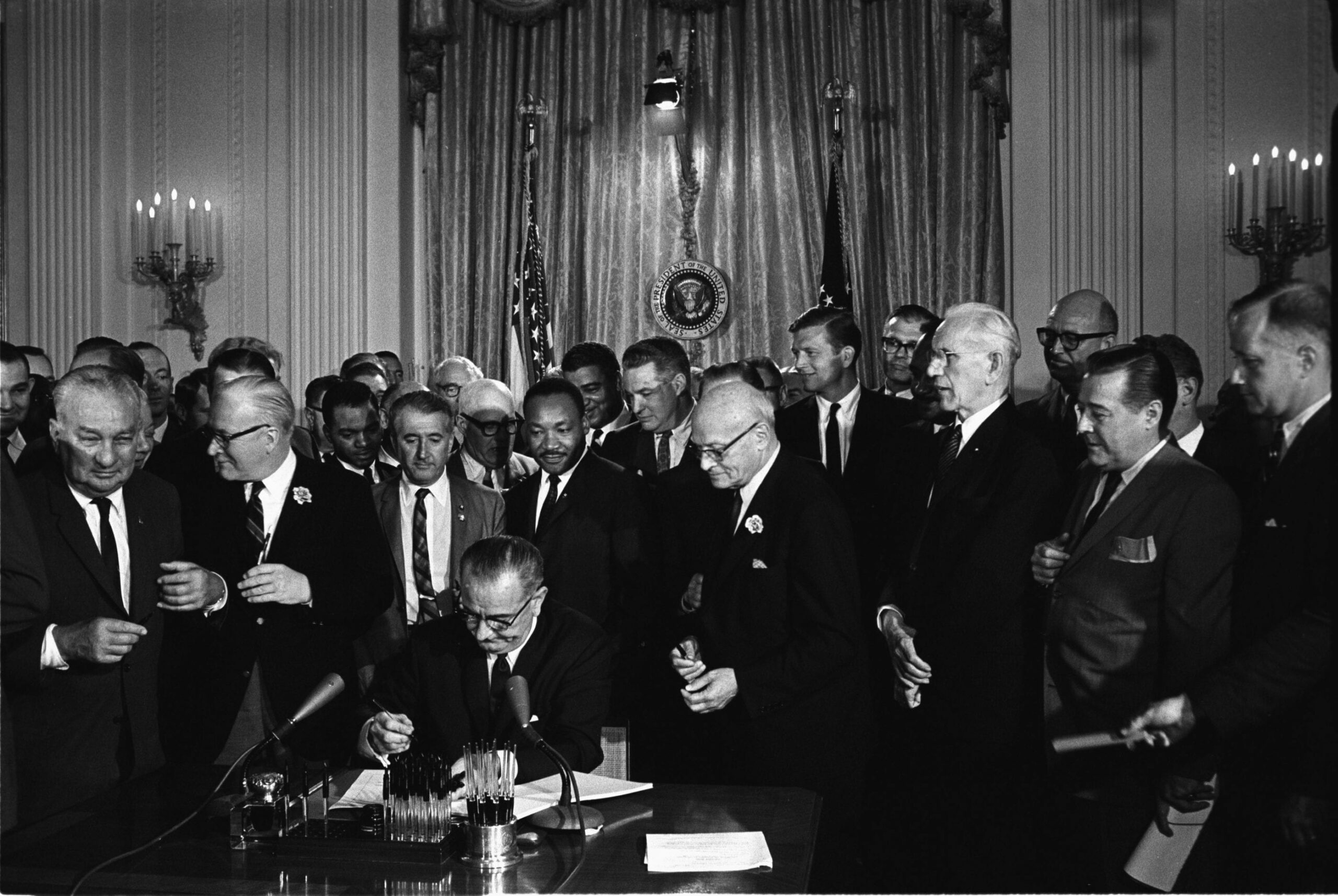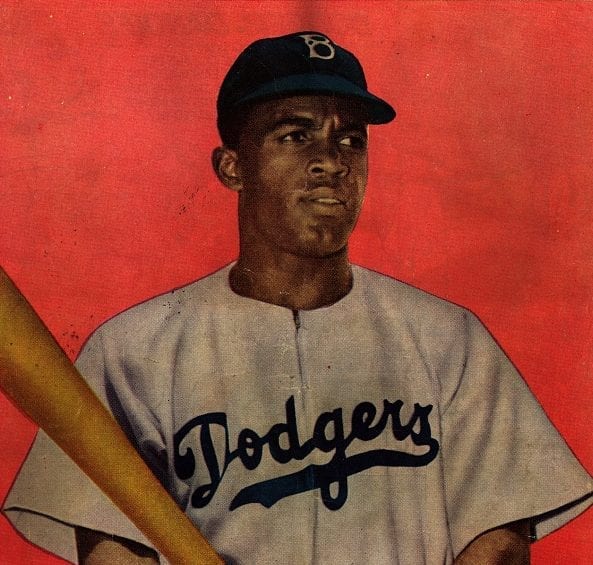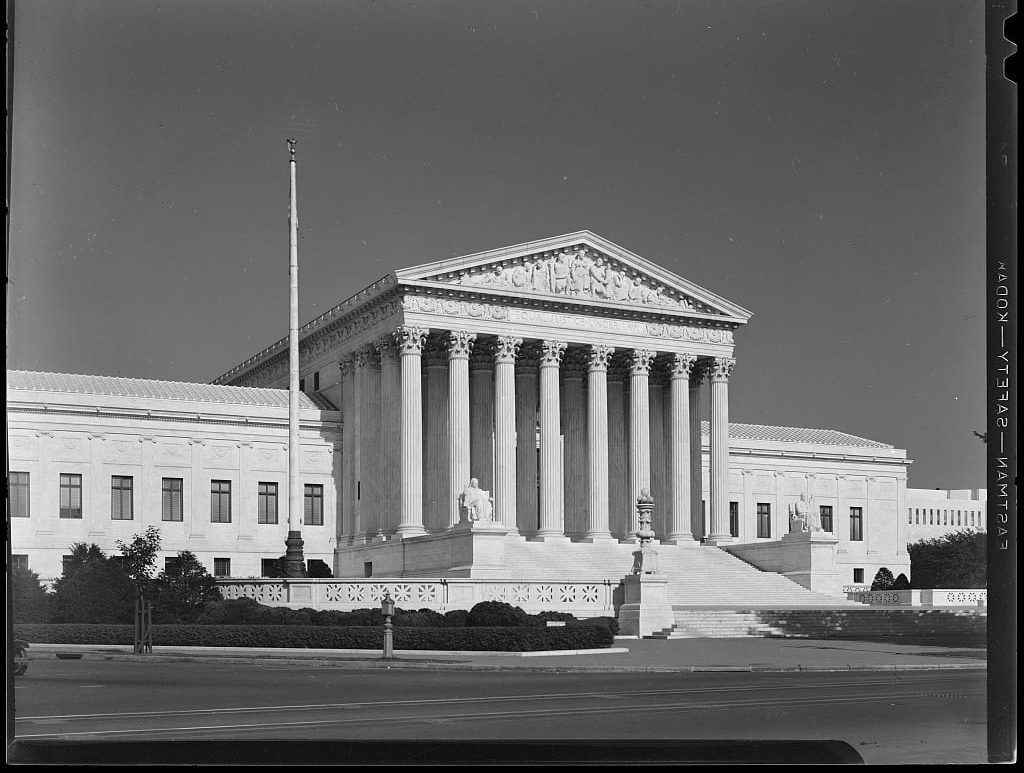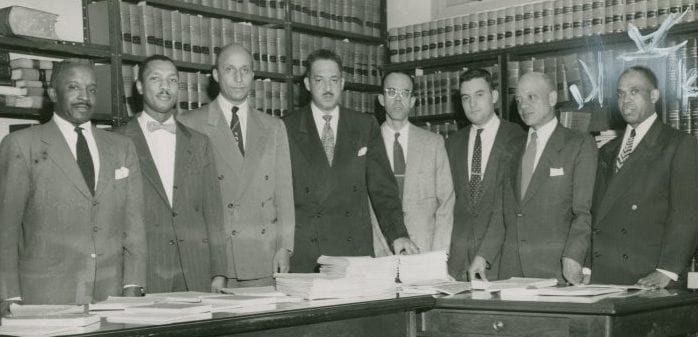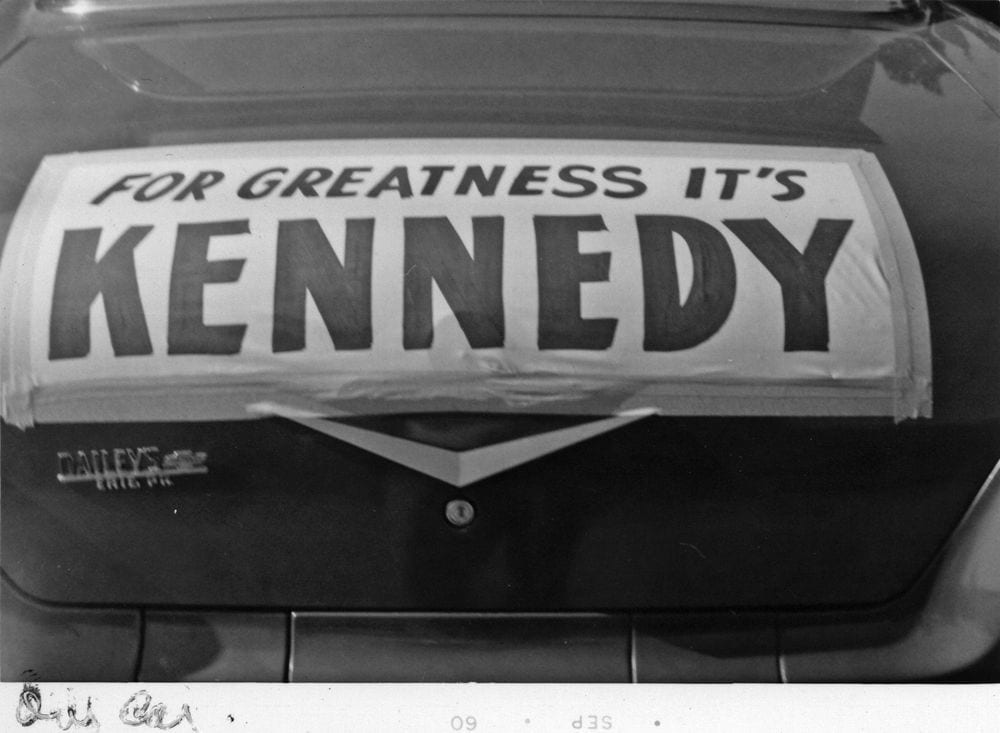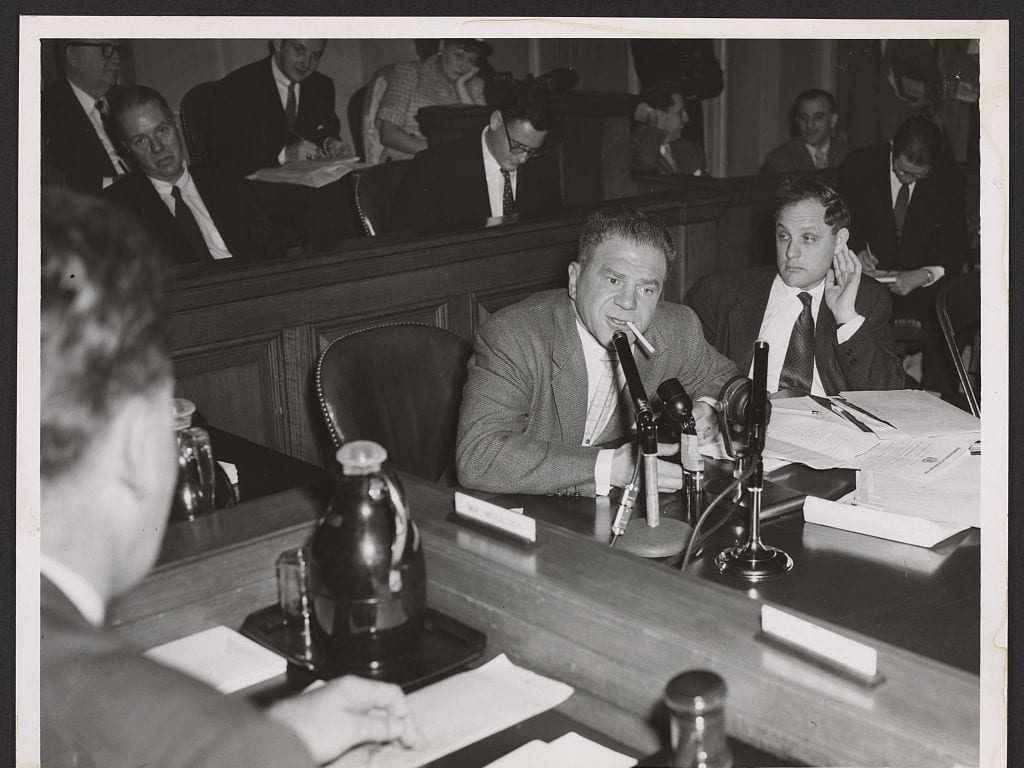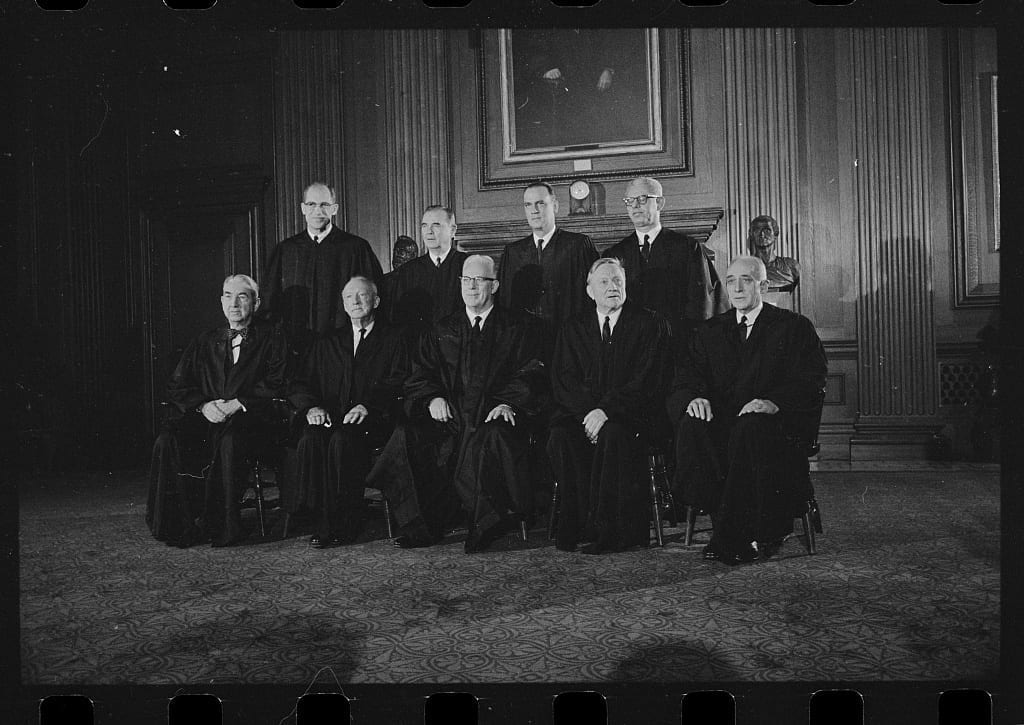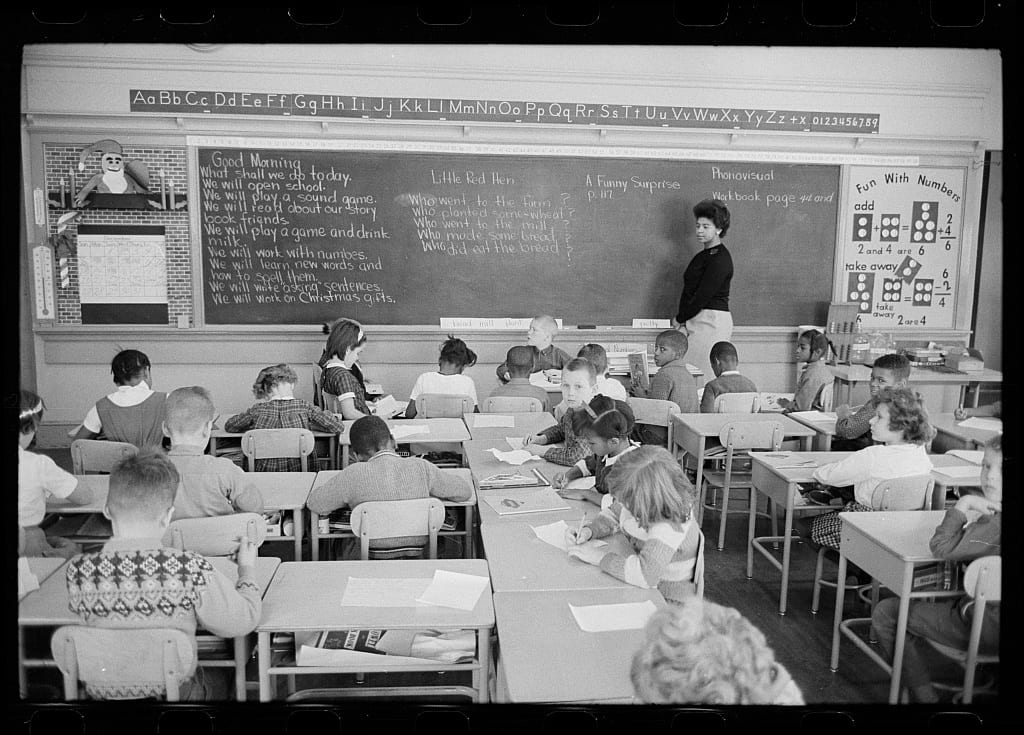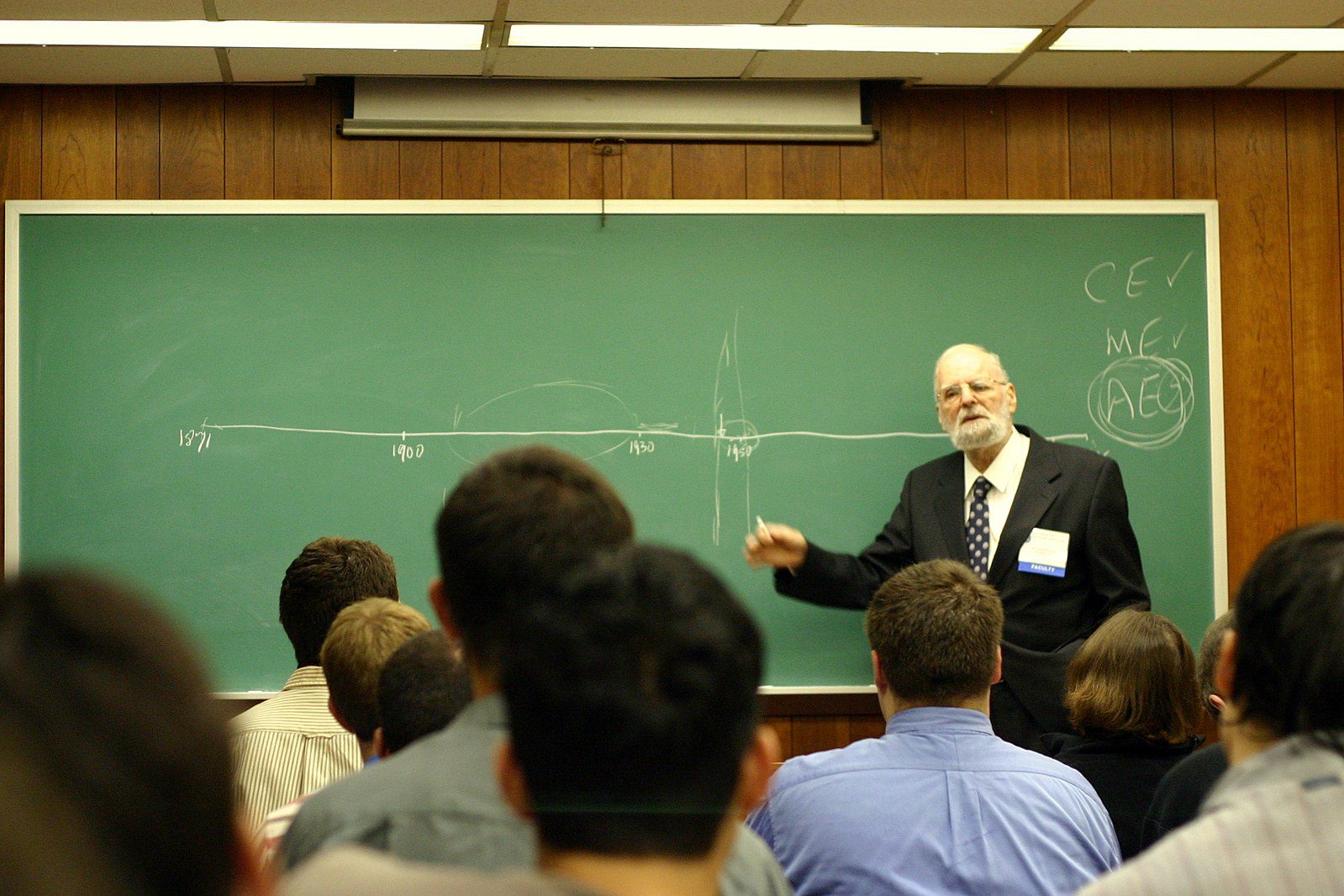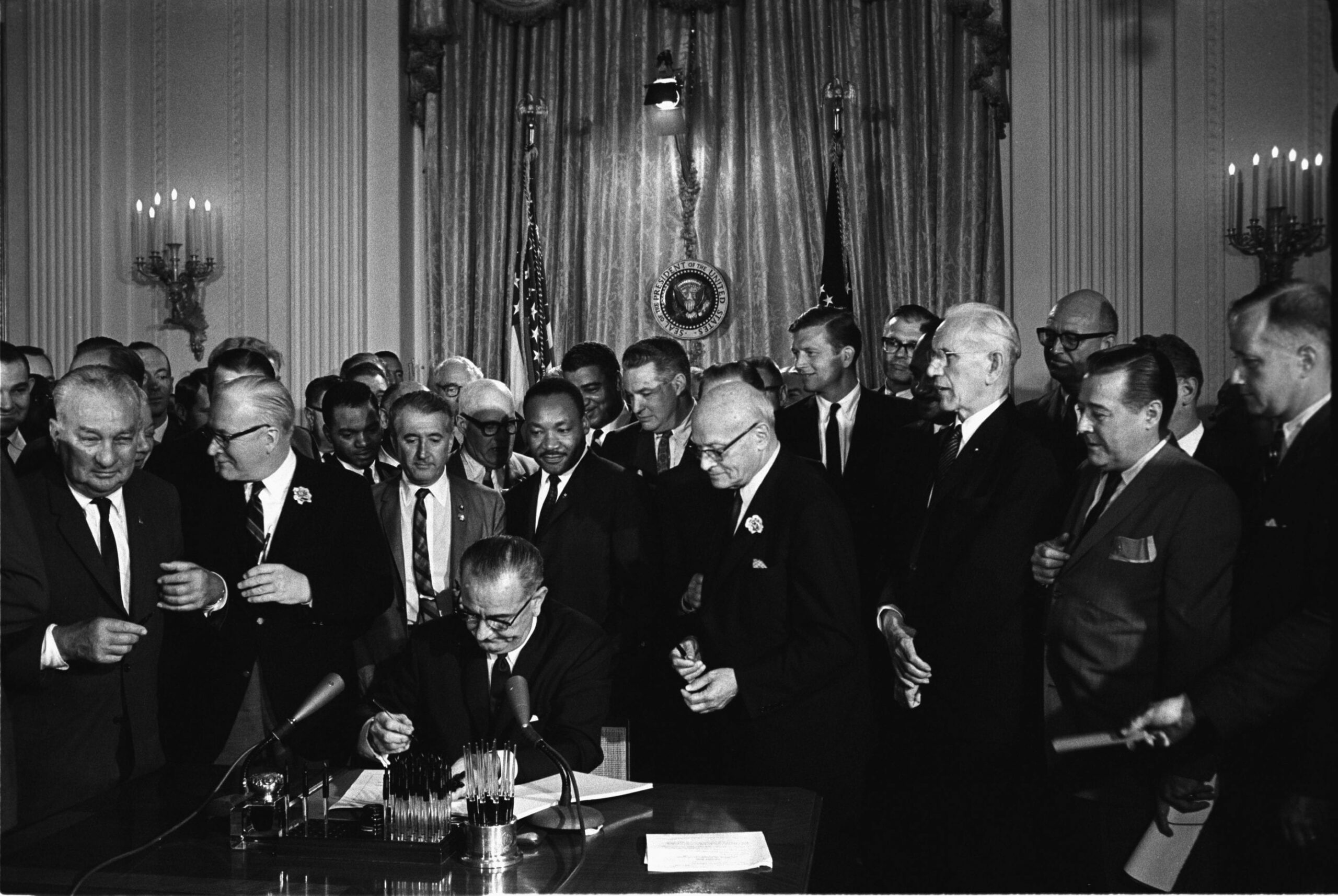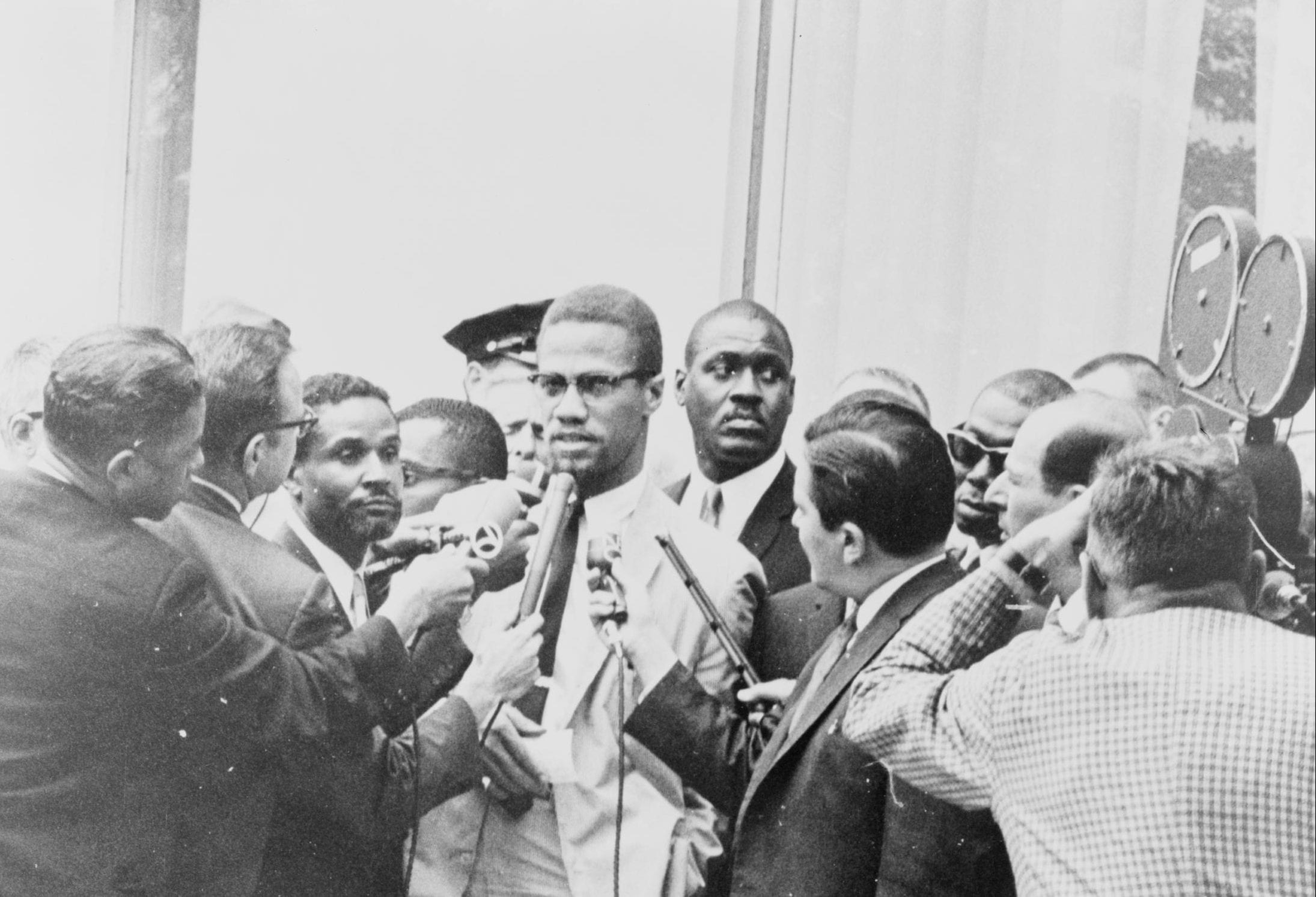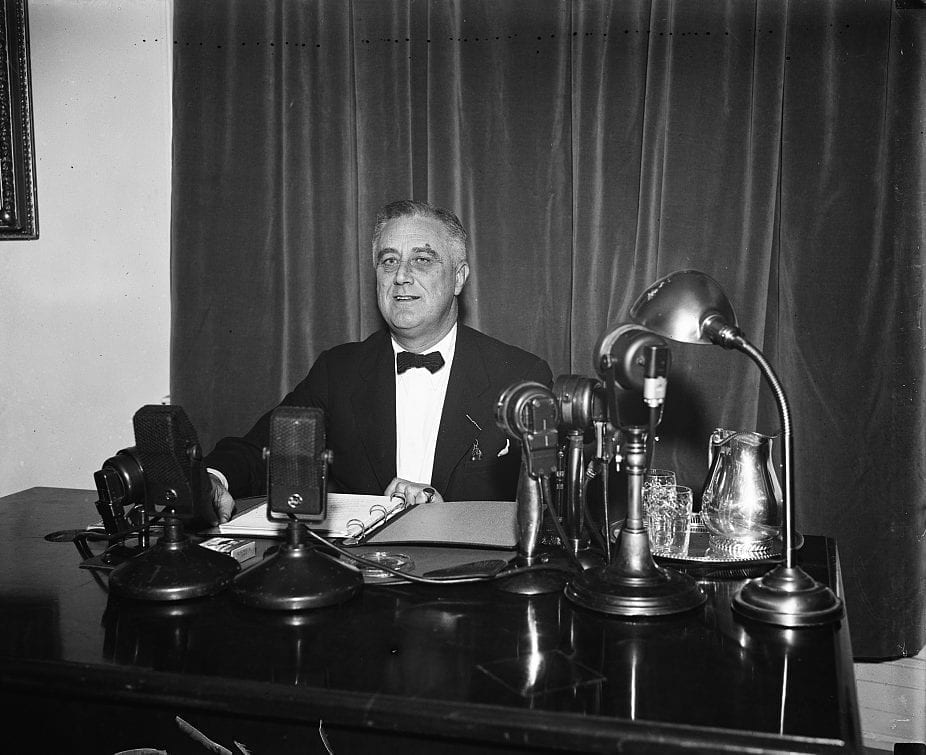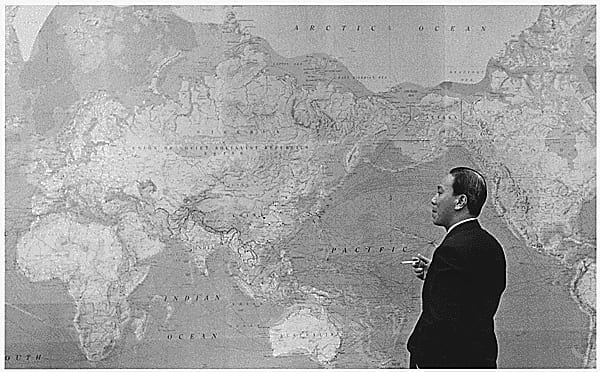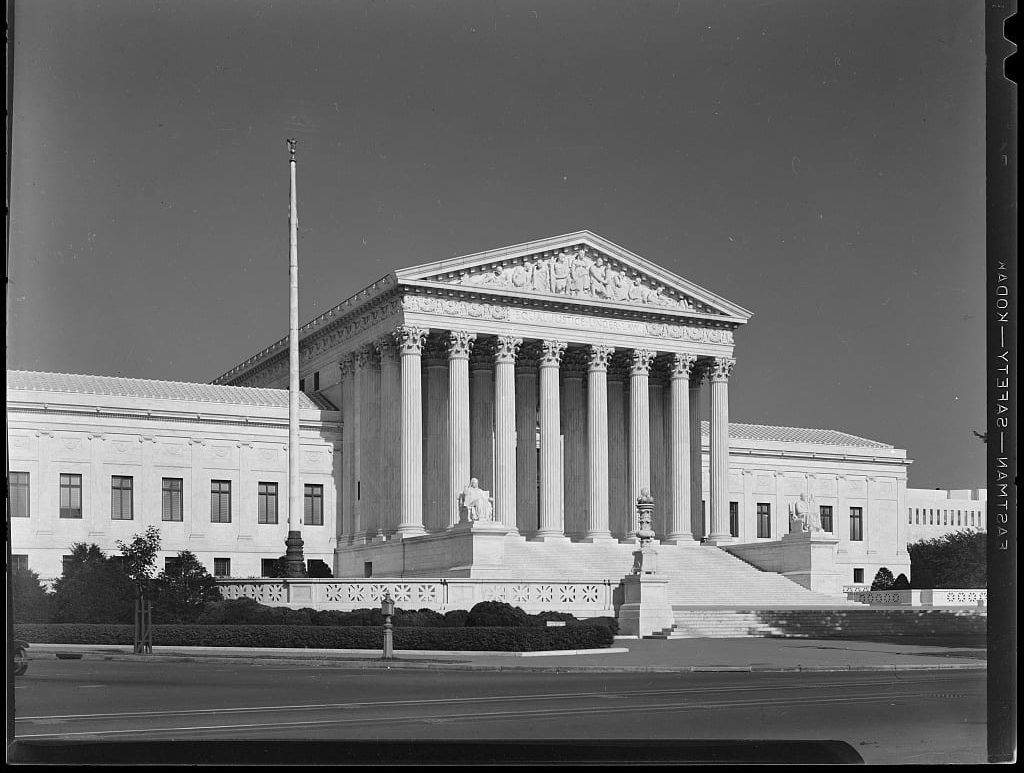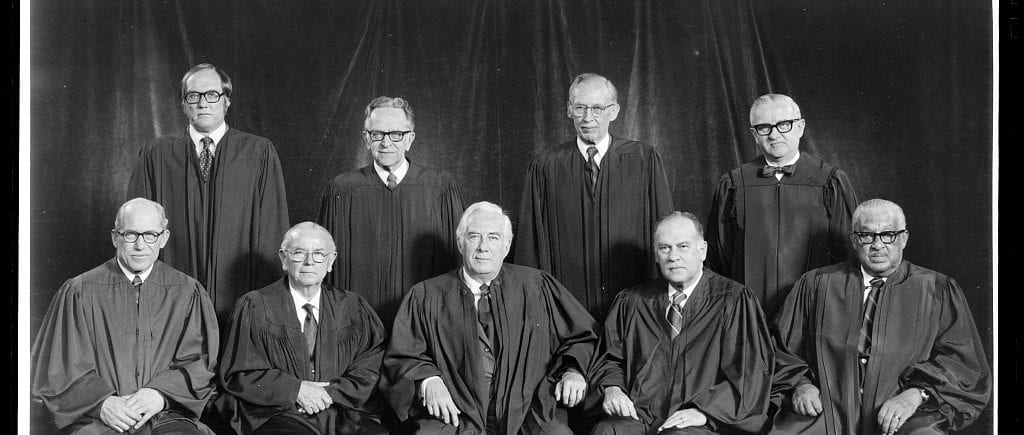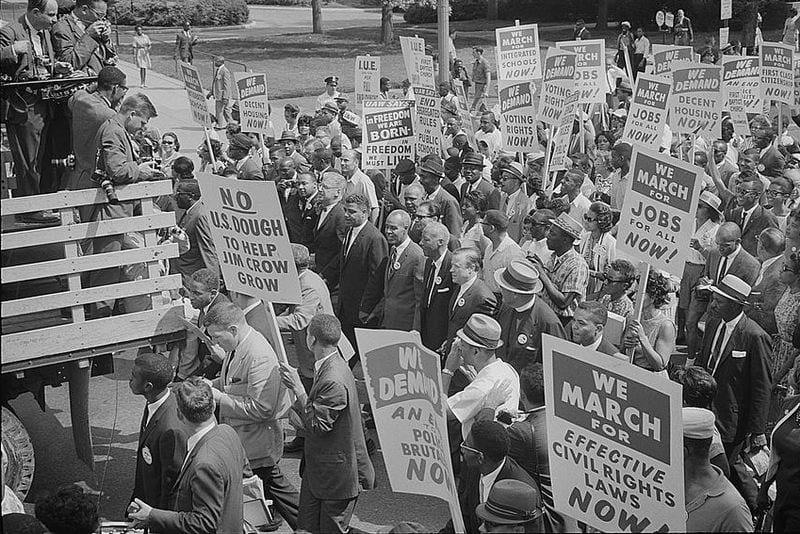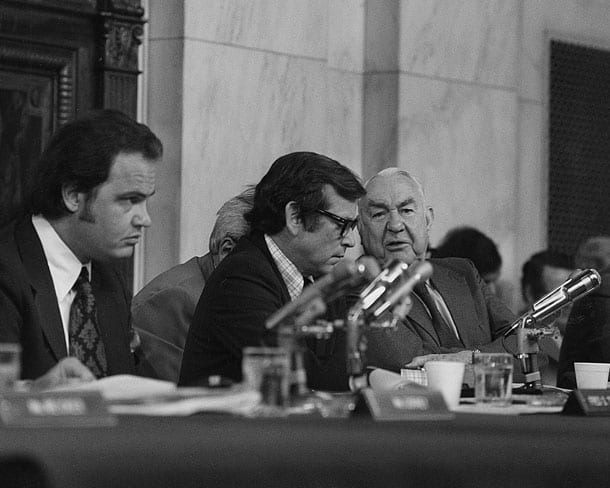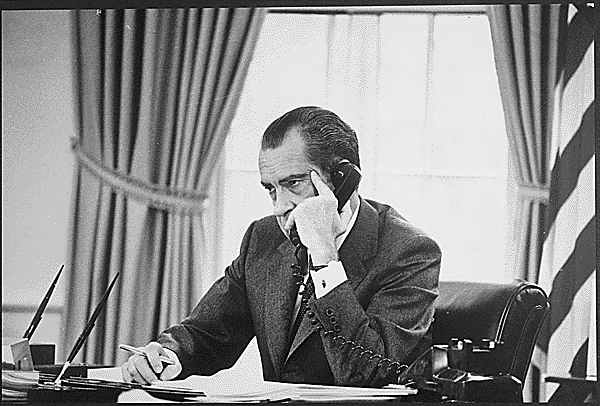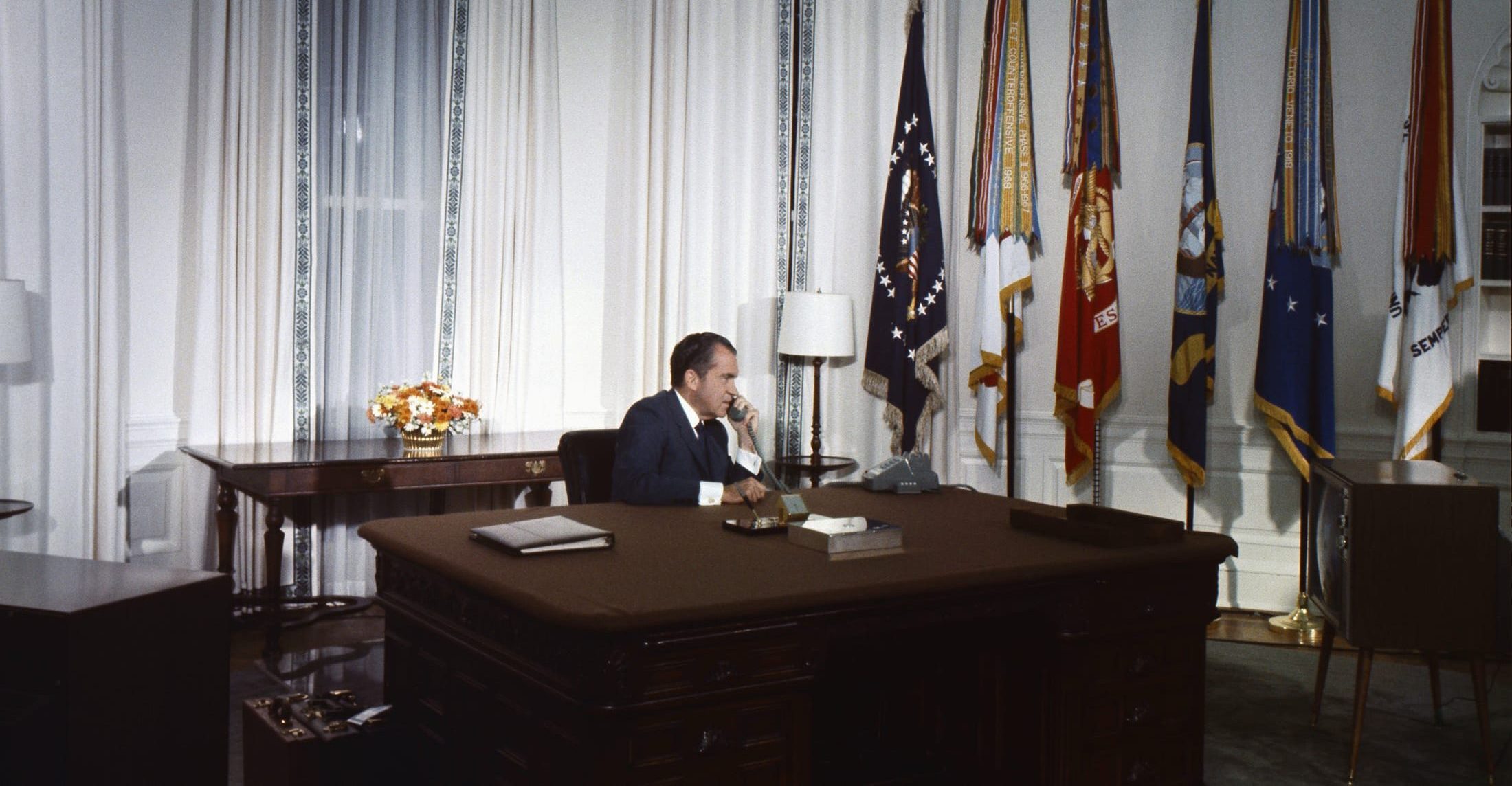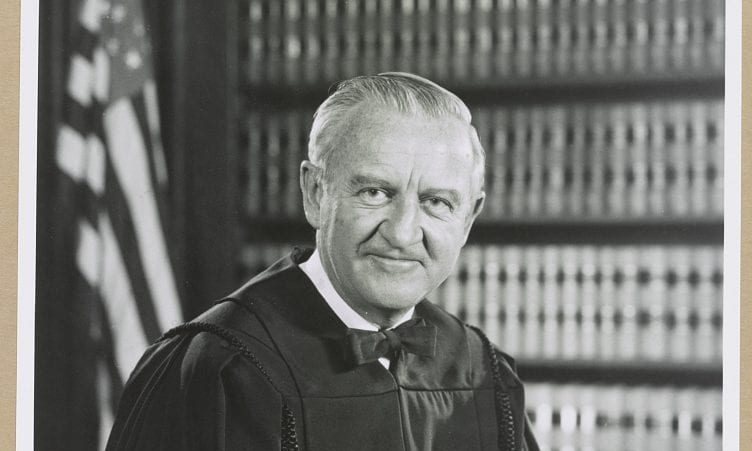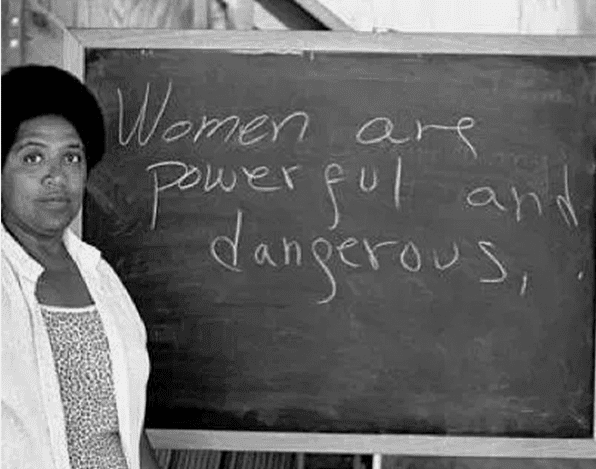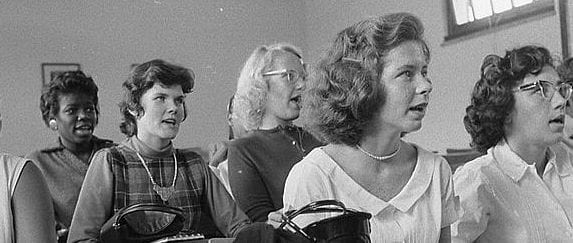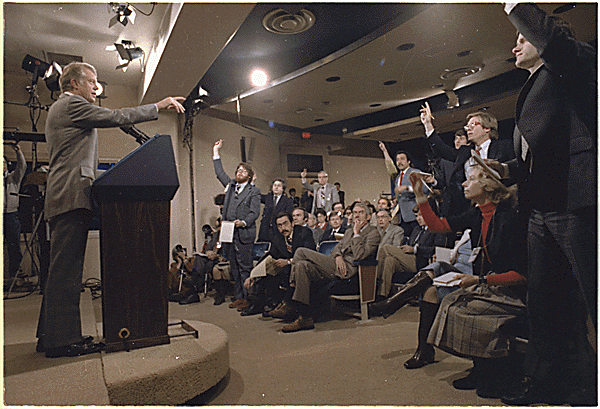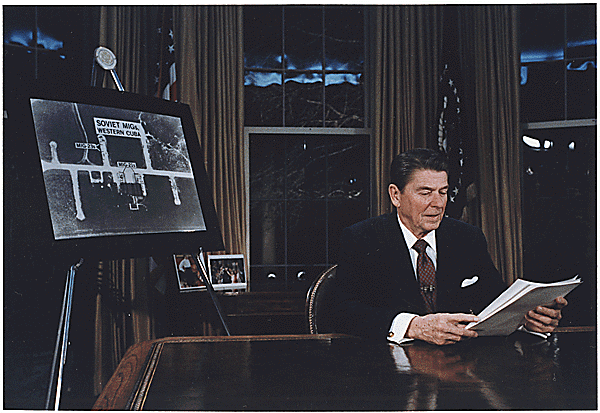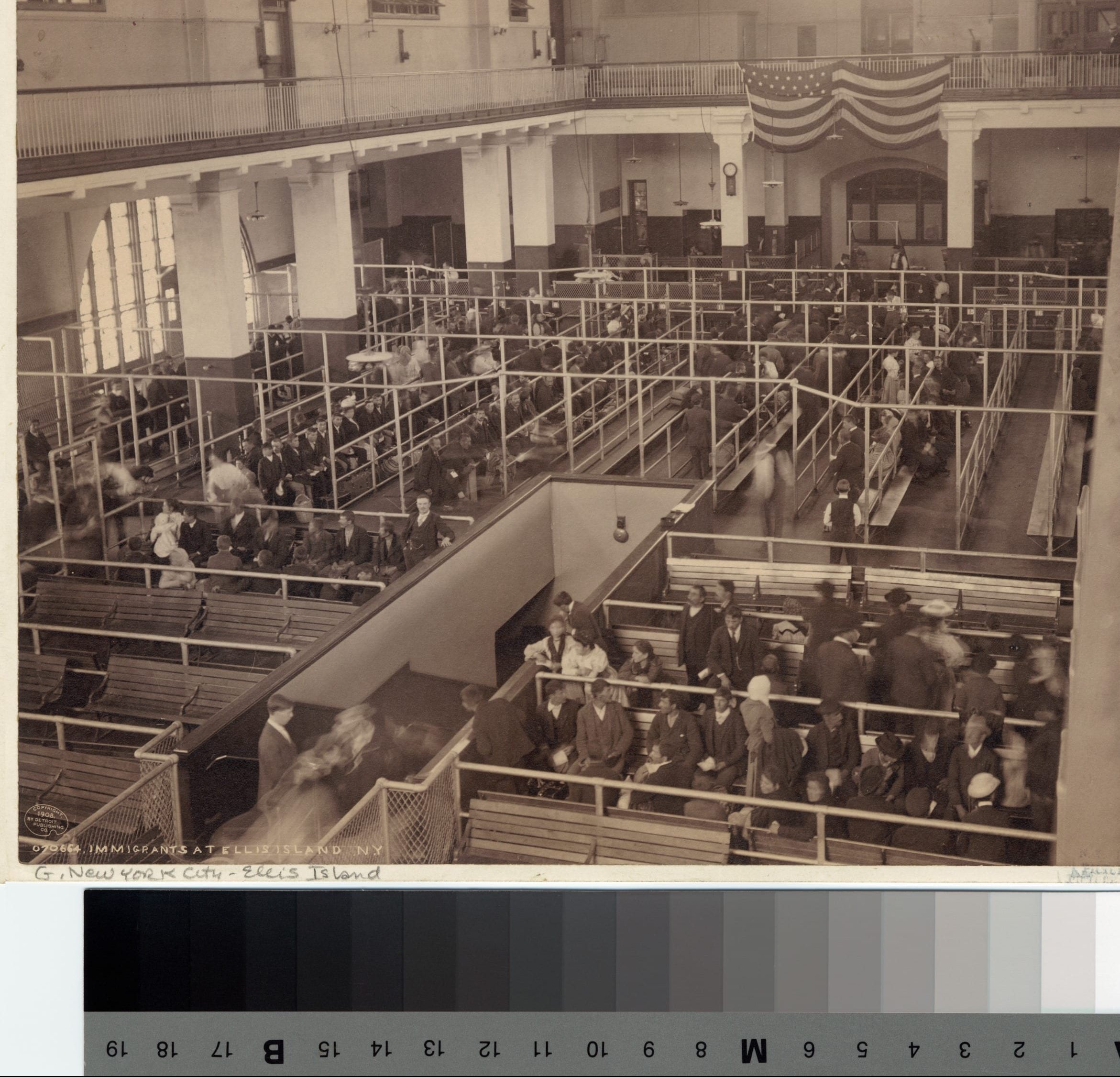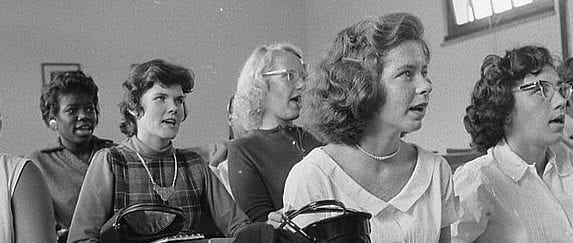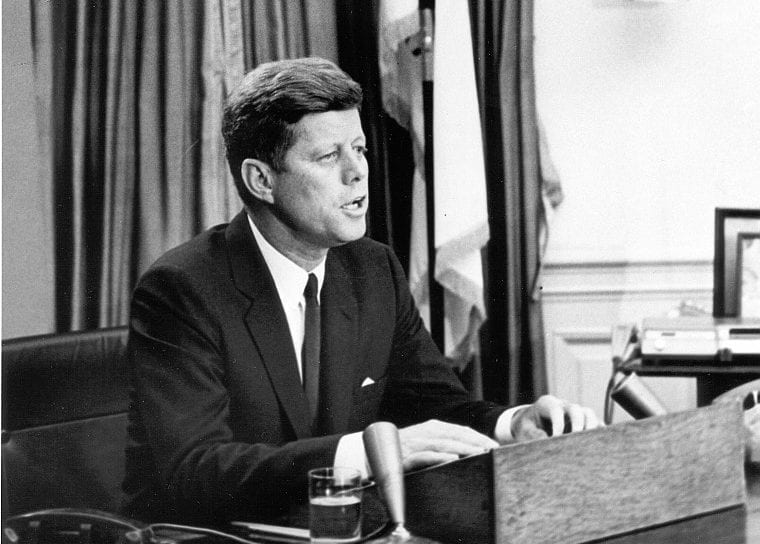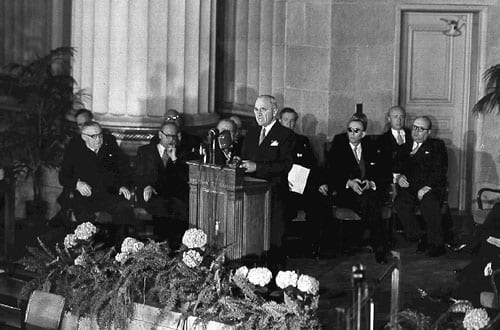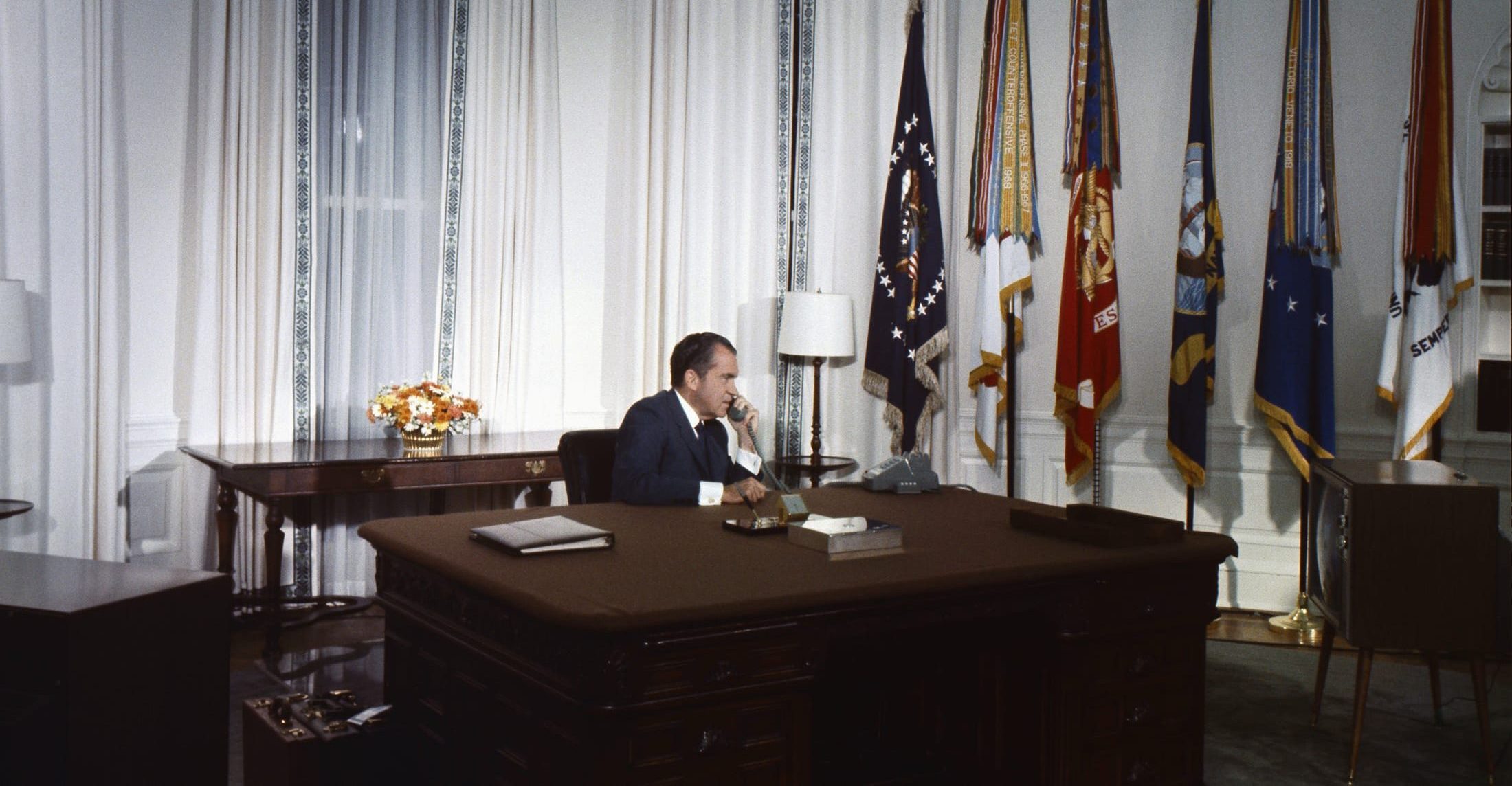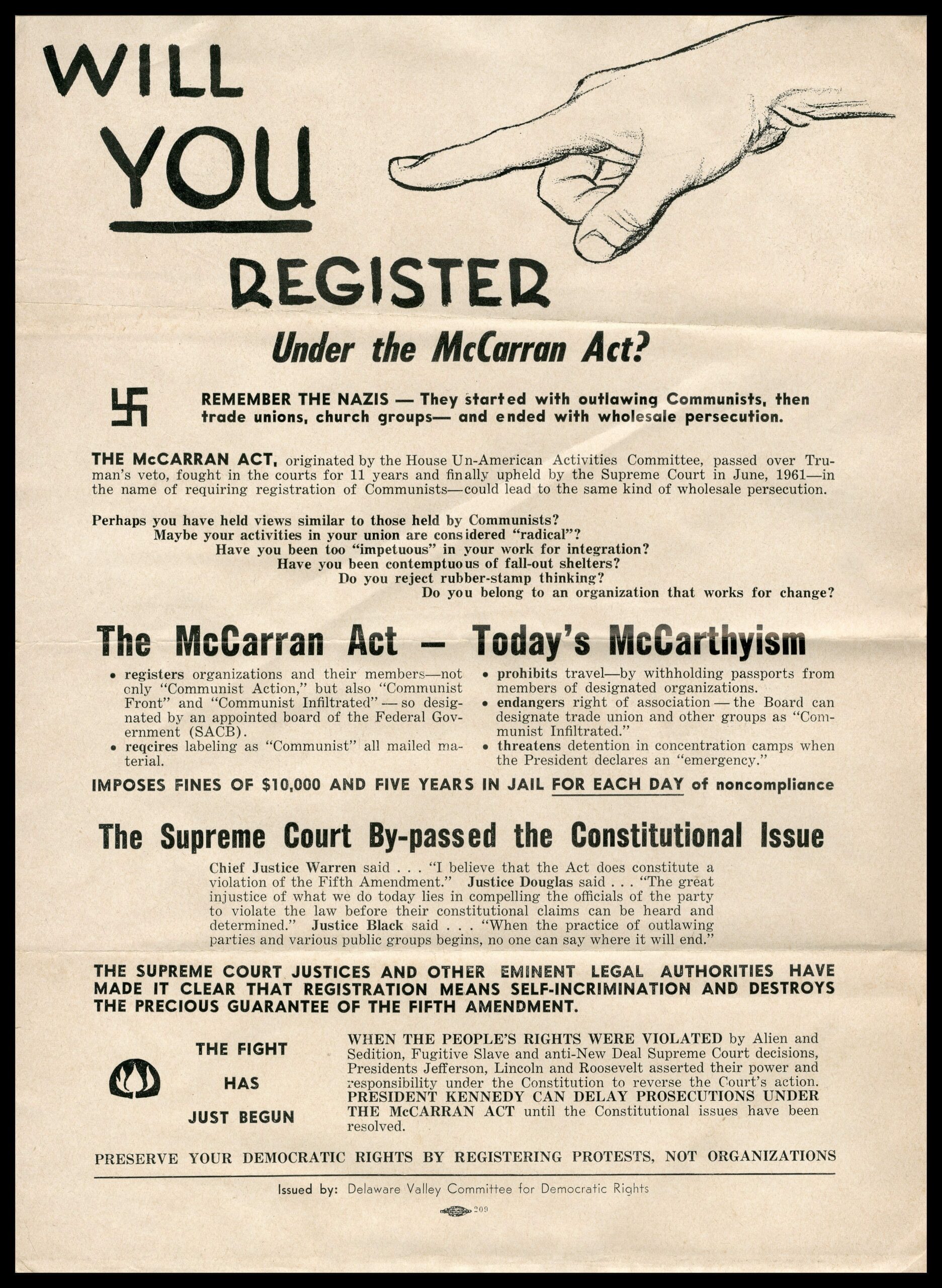
Introduction
A Christian cannot be a communist, King argues, because communism as a philosophical system denies the existence of anything beyond the material realm and, as a related principle, denies the existence of universal moral truth. Worst of all, it denies the essential quality of humanity: the freedom of the individual soul. For King, therefore, communism was a dangerous system, for it denied the only reasonable basis upon which men could relate to one another with any kind of dignity. Yet although a Christian cannot be a communist, King declares that communism “is the only serious rival of Christianity” in the modern world because it does two things well and rightly that the majority of American Christians either fail to do, or do badly. Indeed, he says “It may well be that the success of communism is due to the failure of Christians to live up to the basic principles of Christianity.”
The first lesson to be learned from communism, King argues, is that Christians must take seriously the cries of the oppressed and assert themselves in the name of justice wherever it is lacking. The second lesson is that Christians must be as fiercely committed to spreading the Gospel message of freedom and brotherhood as communists are to spreading their own doctrines. To succeed in either of these areas, King observed, Christians must live their faith not only on Sundays but on weekdays, working not simply to secure material goods but to serve others in their professions, help the hungry and ill-housed poor, and defend human freedom. The sermon ends with a hopeful vision: if American Christians will meet the challenge of communism with a faith-based zeal for justice, they will “make this old world a new world”—a promise reminiscent of Winthrop’s claims of nearly four hundred years earlier (See Winthrop).
Due to copyright restrictions, we are unable to post the full text of this document on our website. You can access the annotated version of the text in the print edition of Religion in American History and Politics: 25 Core Documents, or read the text online (via the website of the The Martin Luther King, Jr. Research and Education Institute at Stanford University).
[Gap in tape] elicit your undivided attention as I attempt to discuss with you one of the vital issues of our day. It is a rather controversial subject, and yet I think it is the responsibility of the preacher to keep his congregation informed on the major issues of the day, to bring the kind of tenets of our gospel to bear on these various issues. Now, this will not be the traditional sermon with a text, and you may feel when it’s over that it’s more of an academic lecture than a moving sermon. But I think it is important for me to discuss the question of communism with you, and so I am using as a subject from which to preach, “Can a Christian Be a Communist?”
Now, there are at least three reasons why I feel obligated as a Christian minister to talk to you about communism. The first reason grows out of the fact that communism is having widespread influence in the contemporary world. Like a mighty tidal wave, it has moved through China, Russia, Eastern Europe, and now has rolled within ninety miles of the borders of our nation. More than a billion of the peoples of the world believe in communism. And many of these people have accepted it as a new religion, and they are willing to surrender their total being to this system. A force so potent cannot be ignored.
A second reason that I feel compelled to talk about communism this morning is that it is the only serious rival of Christianity. The other historic and great religions of the world such as Judaism, Mohammedanism, Buddhism, and Hinduism may stand as alternatives to Christianity. But for the most formidable competitor that Christianity faces in the world today, we must look to communism. No one conversant with the hard facts of modern life can deny the truth that communism is Christianity’s most serious rival.
The third reason that I feel compelled to talk about communism this morning is that it is unfair and certainly unscientific to condemn a system of thought without knowing what that system of thought says and without knowing why it is wrong and why it is evil. So, for these reasons, I choose to talk about this troubling issue.
Now, let us begin by answering the question which our sermon topic raises: Can a Christian be a communist? I answer that question with an emphatic “no.” These two philosophies are diametrically opposed. The basic philosophy of Christianity is unalterably opposed to the basic philosophy of communism, and all of the dialectics of the logician cannot make them lie down together. They are contrary philosophies.
How, then, is communism irreconcilable with Christianity? In the first place, it leaves out God and Jesus Christ. Communism is avowedly secularistic and materialist. The great philosopher of communism, Karl Marx, based his total philosophy on what he called dialectical materialism. There was a philosopher by the name of Hegel who had used what he called the dialectical system to analyze concepts, and Karl Marx was willing to take Hegel’s dialectic. And then he studied another man by the name of Feuerbach, a German philosopher. This man was a materialist. And so he took the materialism of this man and added it to the dialectic that he got from Hegel, and this is why his system is called dialectic materialism.
Now, what is materialism? It says in substance that the whole of reality can be explained in terms of matter in motion. In other words, it says that the basic stuff of reality is the material stuff. Materialism says, in substance, that idealism is wrong when it talks about the ultimate reality of mind and spirit and all of that. Karl Marx was a materialist, and he believed that the whole of human history moved on, driven by economic forces. This was his idea. There was no place in that system for God, and so from that moment on, communism became an atheistic system. And to this very day it is atheistic. It denies the existence of God. And if one goes to Russia, even today, he will find many of the churches fill on Sunday morning, but we know that in spite of that, the Russian government has had a campaign against religion, and against God and belief in God, ever since the revolution in 1917.
So that no Christian can be a communist because communism leaves out God. It regards religion psychologically as wishful thinking, regards religion intellectually as the product of fear and ignorance. And it regards religion historically as an instrument serving the ends of exploiters. This is what communism teaches about religion. And so, in a real sense, we disagree with this because we believe that history is moved not by economic forces but by spiritual forces. [Congregation: ] (Amen, Yeah) We believe that there is a God (Pray on) in this universe (Yes sir, Yes), a God who loves his children, and a God who works through history for the salvation of man. (Pray on) Consequently, we can’t accept communism at that point.
A second reason that we can’t accept communism is that its methods are opposed to Christianity. (Pray on) Since for the communist there is no divine government or no absolute moral order, there are no fixed, immutable principles. So force, violence, murder, and lying are all justifiable means to bring about the millennial end. Lenin, the man who was something of the technician of communism, putting the philosophy of Karl Marx into practical action, said on one occasion, “We must be ready to employ trickery, deceit, and lawbreaking, withholding and concealing truth.” That the followers of Lenin have been willing to act upon these instructions is a matter of history. For communism the end justifies the means.
There again we can’t go along with this. We believe that there are certain moral principles in this universe that are eternal and absolute. We believe that there are some things right and there are some things wrong. It’s wrong to lie. It always has been wrong, and it always will be wrong. It’s wrong to hate. (Yes sir) It always has been wrong, and it always will be wrong. It’s wrong to throw away the precious lives that God has given us in riotous living. It was wrong in 1800 B.C., and it’s wrong in 1962 A.D. It’s wrong in Russia. It’s wrong in China. It’s wrong in India. It’s wrong in New York. It’s wrong in Atlanta. (Yeah) We believe that there are some things right, eternally and absolutely so, and there are some things wrong. Then we don’t believe that the end justifies the means if those means happen to be bad. For we know that the end represents the means in process and the ideal in the making. The end is preexistent in the means. And so destructive means cannot bring about constructive ends. Immoral methods cannot achieve moral goals. And so we disagree with the ethical relativism of communism.
In the third place, we have to disagree with communism because the end of communism is the state. I should qualify this by saying that the state in communist theory is a temporary reality, an interim reality, which is to be eliminated when the classless society emerges. (Yeah, yeah) Karl Marx talks of that day when there will be a classless society. The ruling class, or rather the workers, what he called the proletariat, will through the revolution take power from the ruling class, which were the producers or the capitalists. And finally they will come to power, and through their power, they will establish a classless society. He says that while you are on the way to this classless society the state is the end. Man becomes only a means to that end. And if any man’s so-called rights or liberties stand in the way of that end, they are simply swept aside. And so in the communistic system, you do not have freedom of the press. You do not have freedom of speech. You do not have freedom of assembly. All of these things are under the scrutiny of the state, which is manipulated through the party. And whatever the Party says, that must be done. All of the freedoms that are dear to us are denied. Man has to be a servant, a dutiful and submissive servant of the state. The state is omnipotent and supreme, and so if one lived in Russia today, he couldn’t just get up and make a speech against the Communist Party. (Right) If one lived in Russia today, he could not write a book saying certain things without the condemnation of the Party, he may be searched and even killed. (Yeah) You remember the great book that Pasternak wrote, and you remember the problems that he faced because there were within that book some things that they didn’t like in Russia. It had some criticisms of the system.
We know that the most creative moments in history are those moments when individuals are left free to think. The thing that makes man man is his freedom. This is why I could never agree with communism as a philosophical system, because it deprives man of freedom. And if a man is not free, he is not fully man. If a man does not have the capacity to deliberate, to decide, and to respond, as Paul Tillich would say, he is not a man, for a man is man because he is free. And, therefore, communism is on the wrong road because it denies freedom.
And so for these three reasons, I am convinced that no Christian can be a communist. These two systems are opposed to each other. These two systems are contradictory. We must try to understand communism. We must love communists. But never can we accept communism and be true Christians.
Yet, we must realize that there is something in communism which challenges us all. It was the late Archbishop of Canterbury, William Temple, that referred to communism as a Christian heresy. I want you to follow me as I go through this other aspect of the message. By this he meant that communism had laid hold on certain truths which are essential parts of the Christian view of things but that it had bound up with them concepts and practices which no Christian can ever accept or profess. In other words, although communism can never be accepted by a Christian, it emphasizes many essential truths that must forever challenge us as Christians. Indeed, it may be that communism is a necessary corrective for a Christianity that has been all too passive and a democracy that has been all too inert.
Communism should challenge us to be more concerned about social justice. However much is wrong with communism, we must admit that it arose as a protest against the hardships of the underprivileged. The Communist Manifesto, which was published in 1847 by Marx and Engels, emphasizes throughout how the middle class has exploited the lower class. Communism in society is a classless society. Along with this goes a strong attempt to eliminate racial prejudice. Communism seeks to transcend the superficialities of race and color (Yeah), and you are able to join the Communist Party whatever the color of your skin or the quality of your blood, the quality of blood in your veins. (Yeah, Right on)
No one can deny that we need to be concerned about social justice. (Yeah) Karl Marx arouses our conscience at this point. Karl Marx was born a Jew in a rabbinic family. Somewhere along the way as a child, he must have heard his parents reading the words of Amos: “Let justice roll down like waters and righteousness like a mighty stream.”[1] Then, when he was six years old, his parents became Christians, and somewhere along the way he must have heard them reading over the New Testament: “Ye do it unto the least of these, ye do it unto me.”[2] So with this passionate concern for social justice, Christians are bound to be in accord. Such concern is implicit in the Christian doctrine of the Fatherhood of God and the brotherhood of man. Christians are always to begin with a bias in favor of a movement which protests against unfair treatment of the poor, but surely Christianity itself is such a protest. The Communist Manifesto might express a concern for the poor and the oppressed, but it expresses no greater concern than the manifesto of Jesus, which opens with the words, “The spirit of the Lord is upon me, because He hath anointed me to preach the gospel to the poor; He has sent me to heal the brokenhearted, to preach deliverance to the captive, recovering the sight of the blind; to set at liberty them that are bruised, to proclaim the acceptable year of the Lord.”[3] And so a passionate concern for social justice must be a concern of the Christian religion.
We must admit that we, as Christians, have often lagged behind at this point. Slavery could not have existed in the United States for almost 250 years if the church had really taken a stand against it. Segregation could not exist today in the United States if the church took a stand against it. (Well) Mr. Meredith would be in the University of Mississippi right now (Say it) if the church of Mississippi had taken a stand against segregation. (Preach brother) The tragic fact is that, in spite of Mr. Barnett’s defiance of the Supreme Court of the land and the moral law of the universe, we haven’t heard a single word from the churches of Mississippi.[4] (All right) This morning, if we stand at eleven o’clock to sing “In Christ There Is No East or West” (Yeah), we stand in the most segregated hour of America. (Yes it does)
Oh, we have a high blood pressure of creeds and an anemia of deeds, and this is the tragedy facing us today. We must admit that the church has often lagged behind, that the church has too often been an institution seeming to crystallize the patterns of the status quo. Oh, we’ve identified the name of Christ with so many evil things. I heard Mr. Barnett saying the other day that he had to do what he was doing because of the righteousness that had been handed down from God through Jesus Christ. I said to myself, “Isn’t it tragic that we will take the name of Christ, identify it with so many evils of history. Oh, how we’ve lost Christ.” You remember the words of Shakespeare’s Othello. As he stood there before the villain Iago, cried out, “Who steals my purse steals trash; ’tis something, nothing, ’twas mine, ’tis his, has been the slave of thousands. But he who filches from me my good name robs me of that which might enrich him but makes me poor indeed.” (Yes) This is what we’ve done to Christ. (Yes) We robbed him of his good name. (Yeah) And we’ve identified that name with segregation. We’ve identified that name with exploitation and with oppression and with so many of the evils of history.
This is why Karl Marx one day looked out, and this is why others following him have looked out and decided to say, “Religion is the opiate of the people.” It has too often been the opiate of the people. Too often the churches talk about a future good over yonder and not concerned about the present evil over here. Oh, I tell you this morning, and I believe in immortality. (Yes sir) I believe in it firmly and absolutely. But I’m tired of people telling me about the hereafter and they don’t tell me about the here. (Yeah) You can’t say hereafter (Yeah) without saying here. It’s all right to talk about silver slippers in a symbolic sense over in heaven, but give me some shoes to wear down here. (Preach it brother) It’s all right to talk about long white robes over yonder, but give me some clothes to wear down here. It’s all right to talk about streets flowing with milk and honey, but I want to see men in decent homes right here in the world. (Amen) It’s all right to talk about all of these things in terms of a new Jerusalem, but I want to see a new Atlanta, a new New York, a new America, and a new world right here. (Amen)
This is what we’ve got to see—that the church has a social gospel that it must be true to. We must certainly work with individuals and seek to change the soul, that’s very important. But we’ve got to deal with these social conditions that corrupt the soul, and any religion that professes to be concerned about the souls of men and not concerned about the city government that damns the soul (Yeah), the economic conditions that corrupt the soul, the slum conditions, the social evils that cripple the soul, is a dry, dead, do-nothing religion (Amen) in need of new blood. It is already spiritually dead, and the only thing I’m uncertain about it is the day that it will be dead. (All right) We’ve got to see that we are challenged to have a greater social consciousness in this church. We must be concerned about the gulf between superfluous wealth and abject, deadening poverty. One does not have to be a communist to be concerned about this. I would say to you this morning that one-tenth of one percent of the population of this nation controls almost fifty percent of the wealth, and I don’t mind saying that there’s something wrong with that.
I don’t mind saying this morning that too often in capitalism we’ve taken necessities from the many to pave luxuries to the few. I will never be content, I will never rest until all of God’s children can have the basic necessities of life. (Amen, amen, amen) Oh, they tell me, and I think it’s true, that Atlanta has the finest homes for Negroes of any city in the United States. (Yeah) That’s true. Never forget that all these fine homes you see represent less than five percent of the Negro population of Atlanta. I’m not concerned about five percent of the Negroes living all right. (Well) I want to see all of God’s children (Yeah) with a decent home and three square meals a day and able to educate their children. (Amen) God wants this for everybody. (Yes Jesus) And I will never be content as long as somebody over here can make five hundred thousand dollars a year, and I’ve met black men and women down in Mississippi who make less than five hundred dollars a year. (Amen, Brother, Keep it going) Something wrong with that. (Jesus) And I see hungry boys and girls in this nation and other nations and think about the fact that we spend more than a million dollars a day storing surplus food. (Yes) And I say to myself, “I know where we can store that food free of charge—in the wrinkled stomachs of the millions of people in our nation and in this world who go to bed hungry at night.” (Hungry at night) And God has left enough and to spare in this world for all of his children to have the basic necessities of life. (Yes)
There is another thing Marx reveals: the danger of the profit motive as the sole basis for an economic system. We must heed this challenge. I’m afraid that there are too many people in America concerned about making a living rather than making a life. (Yes, Yes) I’m afraid this morning there are too many medical doctors concerned about making a big salary and getting a big home and a fine car than there are about healing the sick bodies of men. (Yes) I’m afraid that there are too many school teachers in America more concerned about the check that comes at the first of the month than introducing their students to the great, inexhaustible treasuries of knowledge and loving them and watching them grow. I’m afraid that there are too many preachers in the pulpit (Yes) more concerned (Yes) about their anniversaries (Yes) than they are about saving the souls of man. (Yeah) I’m afraid, my friends (Yes, Go on), that we are prone to judge the success of our profession by the size of the wheel base (Yes) of our automobiles (That’s right) rather than the size of our service to humanity. (All right) Something is telling us today (That’s true) that there is something more than making a lot of money. (Yeah) We must make money to live, but we must always remember that money is just an ingredient in the objective which we seek in life. (Yes) And if we don’t see that, we’ll make money-making an end rather than a means. (Amen) Jesus said, “I know you need it. I know you need money. I know you have need of clothes. I know you need a car to ride in. I know you need a home to live in and to sleep in. I know that you have need of all these things. (Yeah) But seek ye first the kingdom of God. (Yes) Seek ye first righteousness (Righteousness), and all of these (Yes) things will be added unto you.” (Add them Lord) And this is what we must do. (Yes)
Let me rush on now toward my conclusion and say this. We are challenged to dedicate and devote our lives to the cause of Christ as the communists do to communism. We cannot accept their creed, but we must admire their dream (Yeah) and their readiness to sacrifice themselves to the very utmost and even to lay down their lives for a cause that they believe in, a cause that they believe is going to make the world a better place. One watches that zeal, and one has to say, “Why is it that Christians don’t have this zeal? (Amen) Why is it that we don’t have this zeal for Christ? Why is that we don’t have this sense of purpose, this sense of dedication for his kingdom?” Oh, these problems that we face in America and the world wouldn’t be here today if we were as dedicated to Christianity as we ought to be. And it may well be that communism is in this world today because Christians haven’t been Christian enough and democracies haven’t been democratic enough. (Well) It may well be that the success of communism is due to the failure of Christians to live up to the basic principles of Christianity. (Yeah)[Words inaudible] communists will take their system, and they will go out, and they will dedicate themselves to the path of winning others to communism. (Well, Well) They’ll go out in cell groups and work day and night trying to convert somebody to communism. We’ll go day in and day out, year in and year out and never speak to anybody about Jesus Christ. (Well) We’ve got to bring some lost boy or girl, some lost man or woman, into the church and into the kingdom.
If I would ask each of you here this morning to raise your hand if you’ve spoken to somebody about Christ, and about the church, and about the kingdom, and tried to bring them in (Yeah), I would be ashamed to see (Yeah) the small number of hands that would go up if you were really being true. Then they get together, communists, and study Marx and Lenin and Stalin and all of the thinkers of communism. They study at night and in the day. They know their creed. (Yeah) And yet we can’t get Christians to read the Bible. (Well, Yeah) They won’t come to Sunday School. (Yeah) They won’t come to Baptist Training Union. (Amen) And I submit to you that every person sitting in church this morning is biblically and is religiously illiterate. (Yeah) If I’d ask somebody here this morning, where is the Book of Exodus? You’d say it’s in the New Testament. If I’d ask you, where the Book of Revelation? You may say it’s the first book in the Bible, in the Old Testament. Our children come up religiously illiterate. (Yeah) Adults go through life religiously and biblically illiterate. We don’t study about it. We don’t have this zeal. We don’t have this concern. Oh, there is a voice saying to us this morning (Yes it is, Yes it is), “You shall be my witnesses.” (Yes) That means that if we are to be witnesses for Christ we’ve got to talk about it. (Yeah) We’ve got to be willing to convert others. (Yes it is)
The word “witness” in the New Testament has three meanings. You start out in the Gospels, the Book of Acts. The word “witness” means just verbal affirmation, talking about the life and the death and the resurrection of Jesus Christ. We’ve got to talk about this [gospel?] (Yes, we do) You know talking can help someone, don’t let anybody fool you. Hitler used to say that even if you tell a lie, tell a big one, and if you tell it long and loud enough, you’ll convince everybody that it is true, even yourself. And he took that method and convinced the German people that the Jews were the cause of all of their misfortunes (Well) and led that great nation with all of its great minds to the killing of six million Jews. (Well) Now, if a man could tell a lie and turn a nation upside-down toward an evil end, it seems that we could tell the truth about Jesus Christ and turn this world right side-up. (Yeah) Let’s talk about it some.
Then, the word “witness” goes on, and it says that not only that, when you get to the Pauline epistles, it means living a triumphant life. It’s not enough to talk about it, you’ve got to live about it. (Yeah) Too many people have religion on Sunday, but it doesn’t apply to Monday. If they’ll do it every Sunday, they’ll be all right on Monday, just a little song they’ve acquired. But if one is to be a witness for Jesus Christ, he must live this thing. (Yes Lord) He must not only preach a sermon (Well) with words, but he must preach it with his life (Amen) so that his very walking down the street is the embodiment of the principles of Jesus Christ. (Yeah)
And then finally open the Book of Revelation. The word “witness” means being willing to die for the cause of Jesus Christ. (Yes Lord) This morning, my friends, we must believe that there is something so dear, something so precious, something so eternal, that we’ll die for it. (That’s right) And lf you haven’t discovered something that you will die for, you aren’t fit to live. (That’s right) You may be thirty, as I’ve said so often, at that moment some great principle stands before you, some great truth, some great decision, and you fail to take a stand because you are afraid that (Well, Well) something will happen to you or that you will be lulled and you want to live a few more years. (Yeah) Well, you might go on and live until eighty, but I submit to you that you were just as dead at thirty as you are at eighty and the cessation of breathing in your life is merely the belated announcement of an earlier death of the spirit. (Yeah)
You died when you failed to stand up for something. (Yes sir) You died when you failed to give yourself to some great principle. (Yes, yes) You died when you refused to stand up against segregation. (Tell it preacher) You died (Preach) when you refused to stand up against some great evil of society. (Yes) Somebody’s calling us this morning (Yes), saying “Go preach my gospel. (Yes) You shall be witnesses unto me in Samaria (Yes), Judea, and unto every part of the earth, carry this gospel (Pray on) into the villages, to the hedges and the highways (Yes), and tell them about Jesus.”[5]
And if we will do this, we will make this old world a new world. (New world, Yes) We won’t have to worry (Right on) about communism. (Nope) We won’t have to be stacking up on nuclear weapons, for that can’t defeat communism. (Yes) It can never be defeated with ammunition. It can never be defeated with missiles. (Amen) The only way that we can defeat communism is to get a better idea, and we have it in our democracy. (Yeah) We have it in our Christianity. And if we will live by it (Yeah), we won’t have to worry about communism. And men the world over will join hands as brothers, and they will walk this earth knowing that we are all God’s children. (Yeah) Once again, we will be able to sing, not only in Ebenezer on Sunday morning. (Well) We will hear the very angels in heaven stop silent and the eternity stand still. (Yes, Yes) And we will hear Peter cry out (Yes), “The kingdom of this world has become the kingdom of our Lord and Christ. And He shall reign forever and ever.[6] Hallelujah (Yeah), hallelujah!” (Oh, yes)
This is our faith, and this is our hope. We open the doors of the church now. Someone here this morning needs Christ. Someone here needs to follow Him. Who this morning will accept Him? We have a challenge, we have a faith. We don’t need communism. We have it within our religion and within our faith, if we would only live it, if we would only be true to Jesus Christ. This is it. Who this morning will accept Him, as we come to the invitational hymn, hymn number 229, “Jesus Is Calling.” You here this morning, wherever you are, Jesus is calling. [Music] Are you here this morning? We bid you come. Who this morning will come make a decision to Christ? Come and unite with this church. Who will this morning? [words inaudible] [Congregation sings]
- 1. Amos 5:24.
- 2. Matt 25:40.
- 3. Luke 4:18-19.
- 4. On the day after this sermon was delivered, James Meredith would finally be enrolled at the University of Mississippi. Governor Ross Barnett, who had publicly vowed to keep the University of Mississippi segregated, had reluctantly agreed in secret meetings with the Kennedy administration to have Meredith escorted to campus by Mississippi Highway Police. Meredith would be protected from hostile classmates by US Marshals and Army troops until he graduated in August 1963.
- 5. King is quoting the Great Commission, Matthew 28:16-20.
- 6. Revelation 11:15.

Conversation-based seminars for collegial PD, one-day and multi-day seminars, graduate credit seminars (MA degree), online and in-person.

Our Core Document Collection allows students to read history in the words of those who made it. Available in hard copy and for download.


